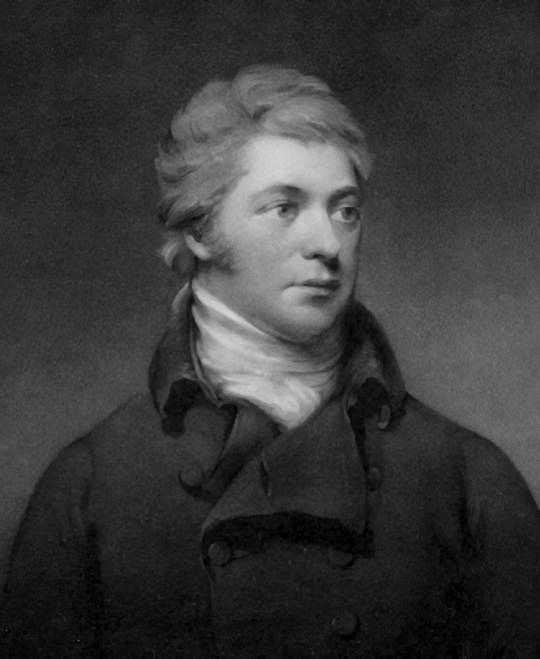Thomas Wallace (1768-1844) First Baron Wallace from 1828. Commissioner, Board of Control 1800-6, 1807-16, 1828-30. Vice-President of the Board of Trade, 1818-23. Master of the Mint, 1823-27. Wallace was a key player in the economic policy questions of the Liverpool administration. He was the son of North’s Attorney General and thought only his father’s untimely death had deprived the family of a peerage. He was at Eton with Canning, who mocked him in later life, and at Christ Church with Liverpool, with whom he remained friends. A Privy Councillor as early as 1801, he was not a good enough speaker to add much Commons strength to the government and was querulous in temperament. Often tipped for promotion, he was never promoted, even when Liverpool became Prime Minister, being turned down by the East India Company for the Governorship of Madras in 1813.
Wallace resigned from the Board of Control when Canning became President in 1816 and was rewarded by Castlereagh with the Vice Presidency of the Board of Trade two years later. After 1820 he chaired the parliamentary foreign trade committee, where he was a steady supporter of trade liberalisation and built a reputation in trade matters. He resigned from the Board of Trade in 1823, when Huskisson was brought in over his head, but Liverpool pacified him later that year by making him Master of the Mint, although still outside the Cabinet. He was chairman of the committee that reformed the Combination Acts in 1825 but thereafter his health declined. When Wellington formed his government in 1828, Wallace was bought off with the long-delayed peerage.
[1] Canning’s objection to him is referred to in a Jenkinson letter quoted in Yonge, The Life and Administration of Robert Banks Jenkinson, Vol. 1, p. 151.
